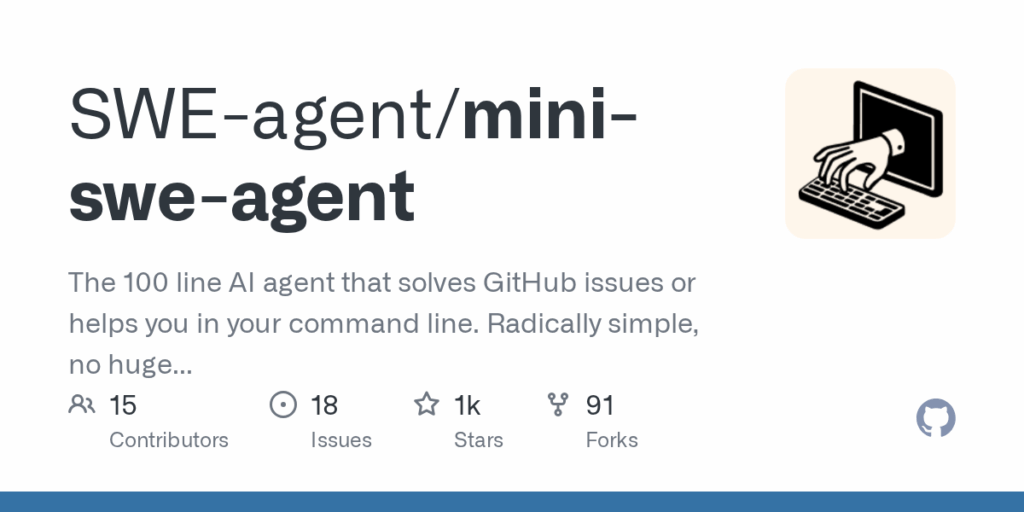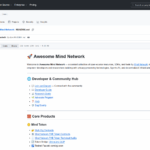mini swe agent
Basic Information
mini-swe-agent is a compact open-source AI agent implemented in roughly 100 lines of Python that automates developer workflows, notably resolving GitHub issues and executing shell-based tasks. It is intended for researchers who need a minimal, auditable baseline for benchmarking, fine-tuning, or reinforcement learning and for developers who want a small, readable command-line tool for everyday automation. The project emphasizes a model-centric design with no custom tools beyond bash and a fully linear message history that makes debugging and prompt inspection straightforward. It includes a simple CLI called mini, optional visual mode, Python bindings, batch inference utilities, and a trajectory browser. The repository documents deployment options including local execution and container runtimes and provides installation methods via pip, pipx, or from source.








